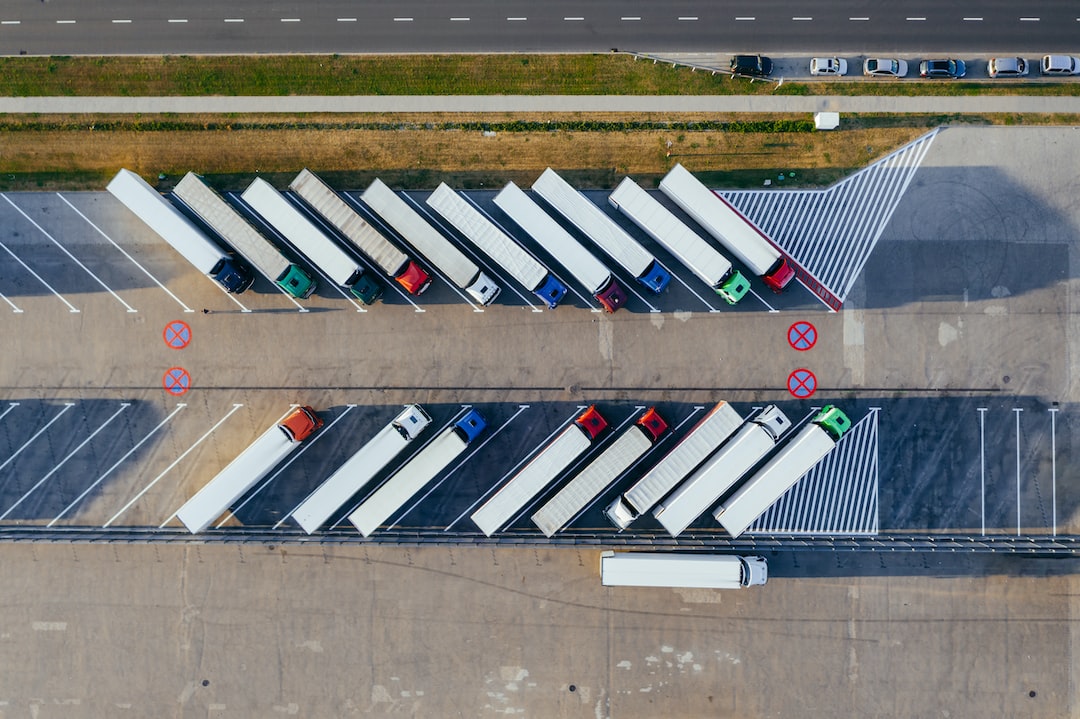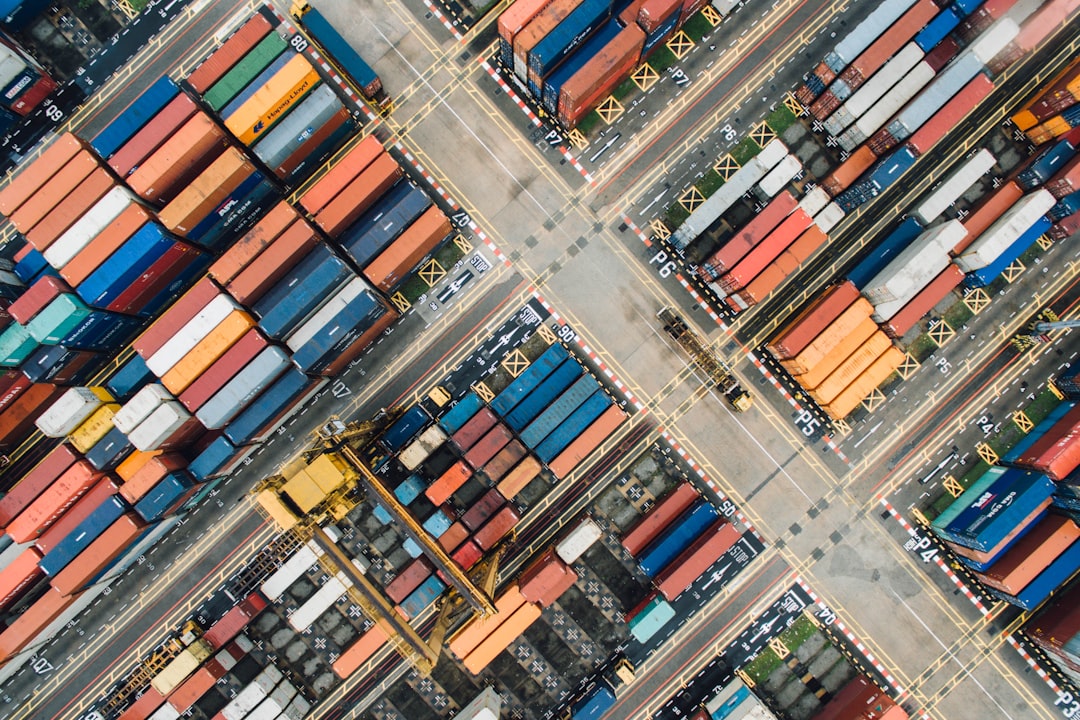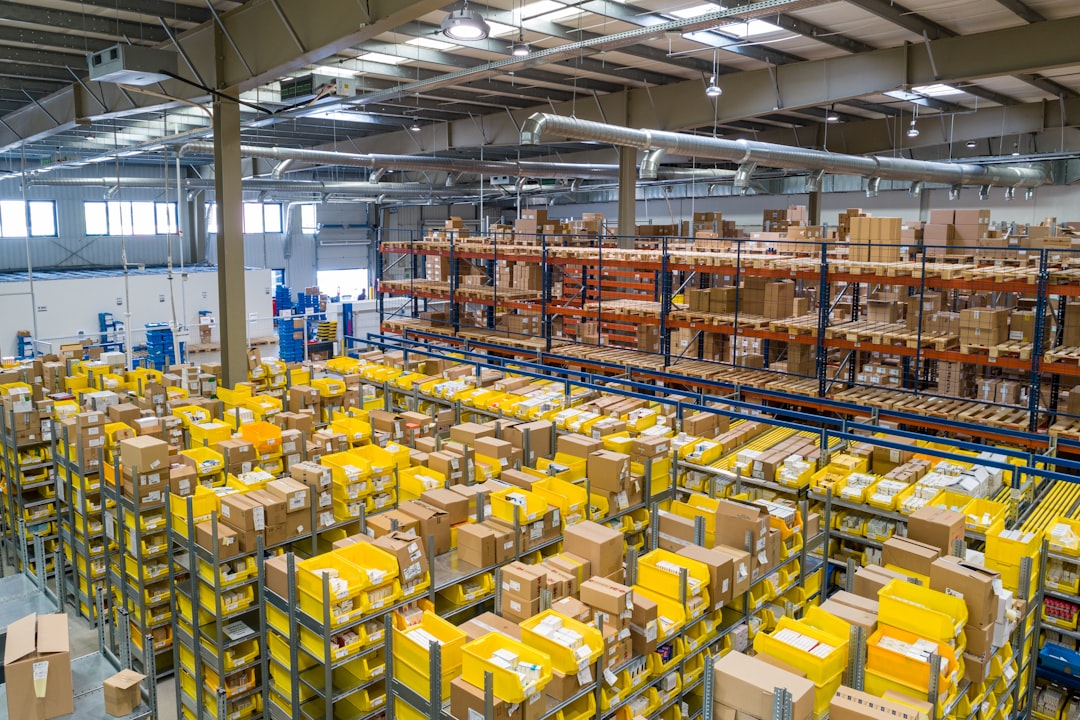In recent years, the emergence of blockchain technology has revolutionized various industries, including supply chain management. Blockchain technology is being increasingly used to streamline logistics, increase transparency, build trust, reduce fraud, and improve traceability in the supply chain. The potential of blockchain technology to track environmental and ethical practices in the supply chain is also gaining traction.
The traditional supply chain system is complex and fragmented, involving multiple stakeholders such as manufacturers, suppliers, distributors, retailers, and customers. It is often challenging to monitor and regulate the movement of goods and services across the supply chain, resulting in slower processes, lack of transparency, and increased risks of fraud and errors.
Enter blockchain technology – a decentralized system that allows for secure and transparent transactions without the need for intermediaries such as banks or other financial institutions. Blockchain works on the principle of a distributed ledger, which ensures that data is stored and updated across multiple nodes or computers, making it nearly impossible to tamper with or manipulate the information.
Blockchain technology is increasingly being adopted in supply chain management to streamline logistics and increase transparency. By using a blockchain-based system, stakeholders can track the movement of goods and services across the supply chain, in real-time. This increased transparency helps logistics managers make informed decisions and optimize the supply chain to reduce lead times, increase operational efficiency and ultimately reduce costs.
In addition to streamlining logistics, blockchain technology also helps to enhance trust in the supply chain. Trust is built by ensuring that all transactions are transparent, tamper-proof, and secure. Blockchain technology provides this assurance by creating a shared ledger that is updated simultaneously across all nodes in the network, which makes it virtually impossible to manipulate the records.
Improving traceability is another crucial aspect of supply chain management that is drastically improved through the implementation of blockchain technology. With blockchain, it is possible to track products from origin to consumer, ensuring that the product has gone through all the required checks and balances, including quality assurance and regulatory compliance. This traceability not only helps in ensuring that the product is safe and authentic but also helps in identifying and resolving issues during the supply chain process.
Finally, blockchain technology also has the potential to track the environmental and ethical practices of different stakeholders in the supply chain. With consumers paying more attention to the sustainability of products and ethical business practices, blockchain technology can provide transparency and accountability in these areas.
In conclusion, the use of blockchain technology in supply chain management is rapidly gaining traction, with more and more companies adopting this technology to streamline logistics, increase transparency, build trust, and improve traceability. As the technology continues to mature, we can only imagine the potential it holds for supply chain management, including sustainability benefits and reducing carbon footprint across supply chains.
Streamlined Logistics: How Blockchain Increases Transparency and Accelerates Processes
Blockchain is a revolutionary technology that has started gaining traction in the logistics industry over the past few years. One of the reasons for its increasing adoption is its ability to streamline logistics by increasing transparency and accelerating processes.
Traditionally, supply chain management can be a complex and cumbersome process, involving multiple parties, complex contracts, and an abundance of paperwork. This can often lead to delays, errors, and even fraud. However, blockchain provides a solution to these issues by creating an immutable and transparent ledger that allows all parties to view and track information in real-time, thereby increasing visibility and reducing the risk of errors or fraud.
For instance, blockchain can improve supply chain logistics through the use of smart contracts. These are digital contracts that can be programmed to automatically execute when certain criteria are met. This means that payments, contracts, and transactions can happen automatically, without intermediaries or paperwork. This results in faster and more efficient transactions and reduces the likelihood of errors, inaccuracies, or delays.
Moreover, blockchain can enhance supply chain transparency by providing a secure and easily auditable system for tracking products from origin to the end consumer. With the help of blockchain, companies can easily track the movement and status of goods, ensuring that they are meeting their commitments and complying with regulations.
Additionally, blockchain can be used to create a decentralized marketplace, where buyers and sellers can transact directly without the need for intermediaries. This can help shorten the procurement process and reduce costs as well.
In conclusion, the adoption of blockchain technology in supply chain management has the potential to revolutionize logistics by increasing transparency, streamlining processes and reducing the risk of fraud. As more and more companies realize the advantages of blockchain, we can expect to see significant changes to supply chain management in the near future.
As more and more companies realize the advantages of blockchain, we can expect to see significant changes to supply chain management in the near future.
Enhanced Trust: The role of blockchain in building trust and reducing fraud in the supply chain
In today’s globalized business environment, supply chains have grown increasingly complex, with various stakeholders involved in the procurement, production, and distribution of products. However, this complexity also creates opportunities for fraudulent activities, as it becomes harder to keep track of the entire process. That’s where blockchain technology comes in, offering a new level of trust and transparency to supply chain management.
One of the fundamental benefits of blockchain is its ability to create an immutable, decentralized ledger that tracks every transaction in the supply chain. It means that once a transaction is recorded on the blockchain, it cannot be altered or tampered with, ensuring that all parties have access to accurate and dependable information. This transparency helps to create trust between parties involved, as everyone can be sure that no fraudulent activity has taken place, which is especially important in industries such as pharmaceuticals, where counterfeit drugs are a significant problem.
Moreover, blockchain technology makes it possible to verify the authenticity of a product throughout its journey, from raw material sourcing to final delivery. Every time a product changes hands or locations, the data is recorded and stored on the blockchain, allowing for complete traceability. This level of transparency helps to hold suppliers accountable for their actions and reduces the risk of fraud, counterfeiting, and other unethical practices.
The enhanced trust that blockchain provides also helps to foster more collaborative relationships between suppliers and buyers, as it eliminates the need for intermediaries to validate and verify transactions. This streamlined process reduces costs and delays associated with traditional supply chain management, enabling companies to operate more efficiently and effectively.
In summary, blockchain technology has significant implications for supply chain management, providing a new level of transparency, traceability, and trust. As more companies adopt blockchain in their supply chains, we can expect to see a reduction in fraud, increased efficiency, and greater collaboration amongst all stakeholders involved.
As more companies adopt blockchain in their supply chains, we can expect to see a reduction in fraud, increased efficiency, and greater collaboration amongst all stakeholders involved.
Improved Traceability: Using blockchain to trace products from origin to consumer
Blockchain technology has the potential to revolutionize supply chain management by increasing transparency and traceability. Blockchain creates an unalterable digital ledger that allows for precise tracking of products from the origin to the consumer. This can be particularly valuable in industries such as food and pharmaceuticals, where tracing products is crucial for safety and compliance.
One of the greatest advantages of blockchain technology is that it prevents fraudulent activities such as counterfeit products or documentation. By creating a decentralized ledger where all transactions and product movements are recorded, blockchain eliminates the need for intermediaries, thereby reducing the possibility of fraud or errors. As a result, companies can ensure product quality, protect consumers from fake products, and improve the market’s overall efficiency.
In addition, blockchain technology also allows for real-time tracking of products. Each product is assigned a unique code or identifier that is linked to the blockchain ledger. As a product moves through the supply chain, information such as location, temperature, and humidity can be recorded on the blockchain in real-time. This enhances traceability and enables companies to pinpoint precisely where a product is located at any given moment, which further increases efficiency and transparency.
Traceability also provides a valuable tool in the event of a recall. In cases where a product is defective or dangerous, locating and removing it from the marketplace is crucial. By using blockchain technology, companies can quickly and precisely identify the source of the problem, and therefore protect consumers from potential harm.
Finally, blockchain technology also aids in compliance with various environmental, ethical, and regulatory standards. Companies can use blockchain to trace products from the beginning of the supply chain to the consumer, which can help ensure that products are ethically and sustainably sourced. By having a transparent record of all transactions and movements, companies can respond more effectively to environmental or regulatory concerns, and demonstrate their compliance with applicable standards.
Overall, blockchain technology has significant potential to revolutionize supply chain management by enhancing traceability and transparency. Its ability to create an unalterable and decentralized ledger for product tracking can lead to increased efficiency, reduced fraud, and greater sustainability in the supply chain.
In cases where a product is defective or dangerous, locating and removing it from the marketplace is crucial.
Sustainability Benefits: The potential of blockchain to track environmental and ethical practices in the supply chain
Blockchain technology has taken the world by storm due to its ability to increase transparency and create a permanent, unchangeable record of transactions, making it applicable to various industries, including supply chain management. While blockchain has already proven successful in streamlined logistics, enhanced trust, and improved traceability, it also has enormous potential in promoting sustainable environmental and ethical practices in the supply chain.
With growing concerns around climate change and human rights violations, consumers are becoming increasingly aware of the environmental and ethical impacts of the products they purchase. As a result, there has been increasing pressure on companies to adopt more sustainable and ethical practices in their supply chains. However, the complex nature of today’s global supply chains makes it challenging to trace the origins of products and raw materials, making it difficult to identify and address sustainability issues and ethical concerns.
This is where blockchain technology can be an effective solution. By creating a secure, decentralized ledger of transactions, blockchain makes it possible to track the movement of products and materials throughout the supply chain more transparently and accurately than traditional systems. Consumers and stakeholders can easily verify that a product was produced using sustainable and ethical practices by tracking its journey through the blockchain.
For example, a coffee company that sources beans from a small cooperative may use blockchain technology to track each step of the supply chain, including the farm, processing, transporting, and roasting. This makes it possible to verify the beans’ origin, ensuring that they were grown sustainably and ethically. The company can further create smart contracts with the producer, which can incentivize practices that protect the environment and human rights.
In this way, blockchain has the potential to create a virtuous cycle in which sustainable and ethical practices are incentivized and rewarded through increased trust and customer loyalty. Companies that adopt blockchain technology can establish themselves as industry leaders in sustainability and ethics, positioning themselves to reap the benefits of the growing demand for eco-friendly and ethically produced products.
In conclusion, the potential of blockchain to track environmental and ethical practices in the supply chain is enormous. By creating a transparent and decentralized ledger of transactions, blockchain technology can increase transparency, improve traceability, and reduce fraud while promoting sustainable and ethical practices. As companies look to meet consumers’ growing demands for eco-friendly and ethically produced products, blockchain technology will undoubtedly play an essential role in the future of supply chain management.
Sustainability Benefits: The potential of blockchain to track environmental and ethical practices in the supply chain
Blockchain technology has taken the world by storm due to its ability to increase transparency and create a permanent, unchangeable record of transactions, making it applicable to various industries, including supply chain management.
Conclusion: The Future of Supply Chain Management with Blockchain Technology
After examining the many benefits that blockchain technology can offer to supply chain management, it is clear that we are just scratching the surface of its potential uses. As we continue to find new ways to apply blockchain to supply chain management, we can expect to see even more drastic improvements in efficiency, sustainability, and transparency.
In the coming years, we can expect to see more and more businesses investing in blockchain solutions for supply chain management. This will help to streamline processes and reduce the risk of fraud, while also making it easier to track products from origin to consumer.
Perhaps one of the most exciting things about blockchain technology is its potential to help businesses create a more sustainable supply chain. By tracking environmental and ethical practices through the use of blockchain, we can make more informed decisions about which products we buy, and we can hold businesses accountable for their actions.
Overall, it is clear that the future of supply chain management is closely tied to blockchain technology. As we continue to discover more uses for blockchain in the supply chain, we can expect to see a more efficient, sustainable, and transparent system emerge.
7. Implementing Blockchain in Supply Chain Management
Blockchain technology is set to revolutionize supply chain management by making it faster, more efficient, and less prone to errors. With its unique features of decentralization, transparency, and immutability, blockchain offers immense potential to enhance supply chains across industries. Here are some ways in which blockchain can be implemented in supply chain management:
Smart Contracts
Smart contracts are self-executing contracts that enable automated and transparent transactions between parties without the need for intermediaries. By integrating smart contracts in supply chain management, companies can automate processes such as purchase orders, invoicing, and payments. This not only reduces the time and cost of transactions but also eliminates the possibility of errors and disputes.
Data Management and Sharing
Blockchain technology enables secure and decentralized data management and sharing. This means that all stakeholders in the supply chain can access and share information without the risk of it being tampered with or stolen. This helps to increase transparency and allows for real-time tracking of products across the entire supply chain.
Supply Chain Traceability
With blockchain technology, supply chain traceability becomes more accurate and efficient. By attaching a unique identifier to each product or shipment, companies can track its every move along the supply chain, from the manufacturer to the end consumer. This helps to ensure that products are authentic, safe, and meet regulatory requirements.
Reduced Costs and Increased Efficiency
Implementing blockchain technology in supply chain management can lead to significant cost reductions and efficiency gains. By automating processes, eliminating intermediaries, increasing transparency, and improving traceability, companies can reduce the time and cost of transactions, optimize inventory management, and improve customer satisfaction.
The Bottom Line
In conclusion, blockchain technology has the potential to transform the way we manage supply chains. By increasing transparency, improving traceability, enhancing data management and sharing, and reducing costs and inefficiencies, blockchain can help companies to create more resilient, sustainable, and ethical supply chains. With the right implementation strategy, blockchain can become a game-changer in supply chain management across industries.





